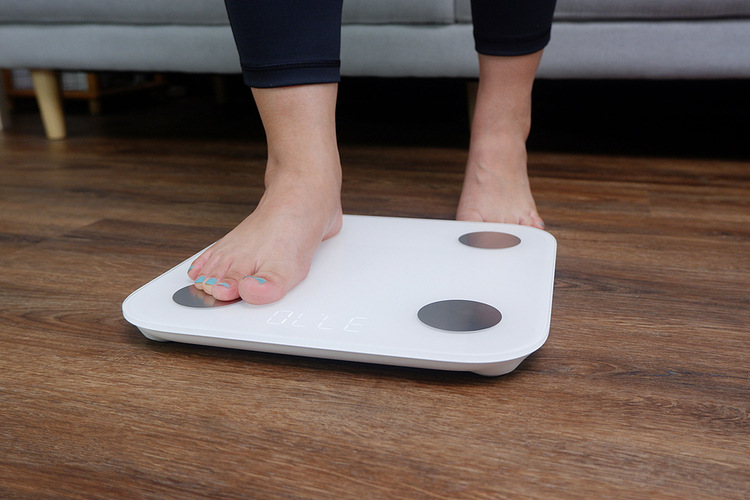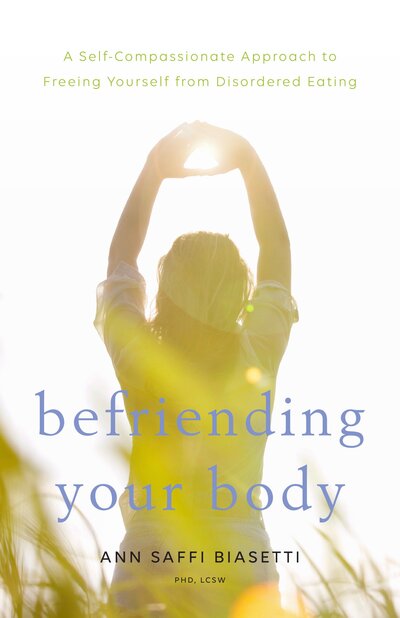We’re all familiar with the physical benefits of exercise. We know it improves our heart health and strengthens our muscles. But did you know there are also mental benefits of exercise? You’ll be happy to hear stress relief is one of them!
With so many people living sedentary lifestyles or working from home due to Covid-19, physical activity is becoming more important. In this blog post, we’ll explore how exercise impacts mental health and how much exercise per week you need to get the benefits.
Exercise and Mental Health
For most people, the number one goal when starting a fitness plan is to improve their physical well-being. But mental health is just as important as physical health. If we put off caring for our mental wellness, our whole life will start to crumble around us. It’s important to think of both mental and physical fitness when focusing on our health.
Exercise and mental health are correlated in many ways. Exercise releases endorphins, which help with mood regulation and stress reduction. Endorphins relieve tension in the body, helping to reduce general aches and pains. Your mood can be lifted simply by feeling less miserable all the time.
Stress can change your state of mind, clouding your thoughts and causing burnout, poor judgment, and damaging relationships. Stress also encourages you to use unhealthy coping methods, worsening mental illnesses. Because of this, exercise is helpful for people with depression, stress, PTSD, and anxiety.
Exercise can also give you a reason to get social, which is another way to improve your mental health. Also, the improvement you see will create a sense of pride and accomplishment, helping with low self-worth. When you set a goal and reach it, you’ll build up your confidence as well.
If all this wasn’t enough, physical activity also boosts the immune system. Additionally, regular exercise aids in neural growth and helps reduce inflammation in the brain. This helps to slow brain tissue loss due to aging.
Lastly, if the exercise is an activity you enjoy, you add a bit of happiness to your day and give yourself something to look forward to. For someone suffering from depression, having a joyful activity is monumental. Getting yourself into a routine is also helpful.
Sleeping For Mental Health
Are you looking to sleep easier and get better quality sleep? As it turns out, exercise can help you with that too! Lack of sleep and sleep quality can have negative effects in the short term, including poor daily mood and function. The long-term effects of poor sleep include chronic stress, a weakened immune system, and the development or worsening of mental illnesses such as depression.
Sleep can also improve mood and memory, keeping your mind sharp. Just make sure you’re not doing any vigorous exercise right before bed. It will make it harder to fall asleep if you don’t have adequate time to cool down and relax.
How to Get the Mental Benefits of Exercise
Getting the mental health benefits of exercise doesn’t require as much as you may think. For an activity to have a positive effect on your mental health, you don’t need to exercise for a long time or at a high intensity. What matters the most is you’re getting active and doing something you enjoy. So, whether you choose strength training, cardio, or even light yard work, you’ll be doing your mind some good.
Finding the activities that work best for you will get you the best results for improving your mental health. You may notice that you’re happier when you work out with a group rather than solo. Or you may decide you enjoy spending time doing activities outdoors instead of indoors. Regardless, you won’t need to spend a lot of money. Here’s a list of free ways to get fit.
Making sure you find enjoyable activities will keep you from wanting to quit as well. When you choose to do workouts you hate, they feel like a chore. If exercise feels like work, you’re going to want to procrastinate. Doing activities you enjoy is a form of self-care and boosts your mental health, even if they don’t get your heart rate up.
Here are a few fun ideas to get yourself moving:
- Rent a kayak for the day. Spending time in nature is also great for your mental health.
- Take a brisk walk while listening to some music or a podcast.
- Activities like yoga encourage mindfulness and breathing, relieving stress and grounding you.
- Join a fitness class to spend some time around like-minded people.
- Go swimming at the beach.
- Do a total body workout at home with weights or a resistance band.
- Throw on your favorite music and dance around the house. It’s fun I promise!
How Much Exercise per Week Do You Need?
The recommendation for how much exercise you should get per week is 30 minutes a day, 5 days a week. But for mental health, any physical activity will do better than none. If you’re short on time, breaking up the 30 minutes into 2, 15-minute workouts is just as effective. Do what you need to to get yourself moving.
The best thing to do when you have a habit of putting off exercise is not to overwhelm yourself. If 30 minutes a day, 5 times a week seems like too much, start smaller. Even 20 minutes 3 times a week will have a positive effect. The key here is to set goals that will be easy to reach and find out what works best for you.
If you’re having trouble holding yourself accountable, take a fitness class or find a friend who will work out with you. Setting an appointment to exercise or having someone counting on you will give you an extra incentive to get active. If you forget to work out, try making yourself a note on your calendar or alarm on your phone, so you’ll remember.
The Mental Benefits of Exercise: In Summary
As you now know, exercise and mental health are well connected. Getting active can improve mental illnesses, better your sleep, and even boost your confidence! Finding the activities you love to do will keep you interested in working out. Knowing the mental benefits of exercise will give you the motivation to get moving.
So, how much exercise per week do you need to see the best results? Any amount is better than none! Make a plan to get some healthy movement in your day. In the end, you’ll feel much better for doing so.
Do you have a favorite physical activity that helps out your mental health? Go ahead and share them with everyone in the comments!
WEIGHT LOSS FOR BINGE EATERS
Weight Loss For Binge Eaters is a course designed to help you overcome binge eating and lose weight while promoting total wellness.
Lose weight healthily with the most effective technique to stop binge eating for good! ON SALE NOW!

That’s it for now everyone. If you’ve found some value in this post, please share it to inspire others too! Thanks!

Facebook | Twitter | Instagram | Pinterest
This post contains affiliate links for products that I love. If you use these links to buy something I may earn a commission with no additional cost to you. Thanks for helping keep this site going! Also, this post was made for the site Lose Weight With Ang. If you’re reading this on a different site, please email us https://loseweightwithang.com/contact/
References:
- https://www.betterhelp.com/advice/mindfulness/
- https://www.sclhealth.org/blog/2018/09/the-benefits-of-getting-a-full-night-sleep/
- https://www.verywellmind.com/tips-to-reduce-stress-3145195
- https://my.clevelandclinic.org/health/articles/11874-stress
- https://loseweightwithang.com/the-amazing-health-benefits-of-daily-exercise/
- https://www.webmd.com/depression/guide/exercise-depression
- https://www.sleepfoundation.org/physical-activity/exercise-and-sleep
- https://www.verywellmind.com/how-sleep-affects-mental-health-4783067
- Featured image credit: Thanumporn/bigstockphoto.com





Ang, well said and great suggestion as to how to do it. One that helps is get a running, hiking or walking buddy. Someone who will goad you to do it when you don’t want to helps loads. Plus, having run more than my knees can stand in my life, running with a partner helps as you get in cadence with their running and it gives you a rhythm and pace. Keith
I second having a person to share your activities with. They makes working out more fun too. Thanks Keith!
Hi C.A., getting good sleep is always a good piece of advice. That and treating your body well. Have a great day!
I sooo agree! The cognitive improvements I gain from Pilates are priceless! ❤️🦋🌀〰️
That’s awesome to hear. Pilates is a great workout!
Definitely running helps my mental health. Excellent article. 😀
I’m glad you liked it 😊
This is so true, Ang. We not long got back from a barefoot walk on sandy Lumsden beach. Perfect for anyone, mentally and physically.
Getting active in nature is always the best.
Exercise got me through my darkest times.
I’m happy to hear it’s helped you, and that you made it through the worst 🙂
Pingback: What is HAES? Understanding Health At Every Size
Excellently penned, informative post.
Thanks
Dear Ang
Many thanks for your post. I find exercise on my bicycle great in the spring, summer and autumn months great as I combine this with taking photos. It satisfies the mind and your stomach seems to be more satisfied too as it were.
I think exercise can ‘shrink’ the stomach, and suppress the appetite, which helps to stop one eating things that won’t be much use to your body.
One thing I have learnt over the last 2 years is that the neuro-toxic effects of big pharma drugs tend to make one lethargic and stop small muscle movements, perhaps even those one is not aware of. This means you do not burn up the calories one might.
One then compensates for lack of movement by eating instead when it the last thing one’s body actually needs.
We can also be dehydrated and drinking more can help in digestion and may satisfy the desire for food, when in reality it is the liquid our bodies need. Of course it depends on what we drink and sadly there are things like artificial sweeteners in sodas/fizzy drinks etc which in reality poison the body.
Kind regards
Baldmichael Theresoluteprotector’sson
I’m happy to hear you’re getting active, eating well, and enjoying it! Keep it up 🙂
Pingback: How to Stay Hydrated Without the Added Sugar - Lose Weight With Ang